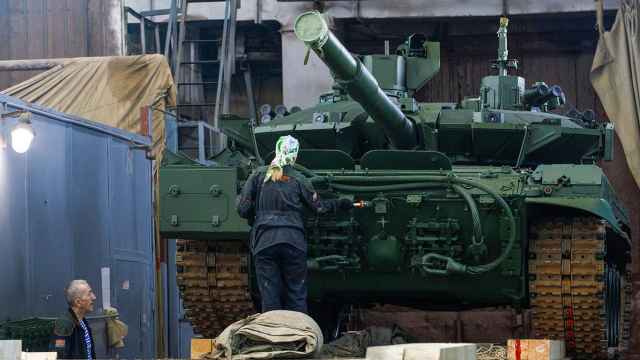Canadian miner Uranium One Holding, acquired this year by state-owned reactor builder and supplier Rosatom, said it would freeze expansion projects in Russia and elsewhere due to low uranium prices.
The price of uranium, used mainly as fuel for nuclear plants, plummeted after the March 2011 meltdown at Japan's Fukushima Daiichi atomic power plant and has shown no signs of recovery.
"We cannot discount the dramatic fall in natural uranium prices, as a result of which more than 50 percent of global uranium production is currently loss-making," Uranium One President Vadim Zhivov said in e-mailed comments Wednesday.
"Given the unfavorable market environment, we have decided to freeze expansion projects both in Russia and abroad," Zhivov said.
Uranium One, which Rosatom took private last month, will mothball the Honeymoon mine in uranium-rich South Australia, local media reported this week, citing high costs and unfavorable contracts with Japan's Mitsui.
A company spokesman confirmed Wednesday that the mine would be put in "care and maintenance" mode.
Zhivov did not specify which of the company's projects had been cancelled, saying the details would be announced later.
Rosatom's mining arm Atomredmetzoloto, which includes Uranium One and is one of the world's top three uranium producers, is also developing the Mkuju River mine in Tanzania and several minor projects in Russia and has plans to expand its Willow Creek project in the U.S. state of Wyoming.
Zhivov said the company was mulling production cuts at some high-cost projects but did not elaborate.
Uranium One, which claims to have the lowest production costs in the industry, said last week it planned to produce 12.5 million pounds of uranium oxide concentrate in 2013 and then reduce output to 12.4 million pounds next year.
November uranium futures on the New York Mercantile exchange closed at $35.85 per pound on Tuesday, compared with $68 per pound before the earthquake and tsunami in Japan.
Uranium One chief executive Chris Sattler said in August that low uranium prices would force high-cost mines to close, which could boost prices in the next couple of years as supplies dwindle.
A Message from The Moscow Times:
Dear readers,
We are facing unprecedented challenges. Russia's Prosecutor General's Office has designated The Moscow Times as an "undesirable" organization, criminalizing our work and putting our staff at risk of prosecution. This follows our earlier unjust labeling as a "foreign agent."
These actions are direct attempts to silence independent journalism in Russia. The authorities claim our work "discredits the decisions of the Russian leadership." We see things differently: we strive to provide accurate, unbiased reporting on Russia.
We, the journalists of The Moscow Times, refuse to be silenced. But to continue our work, we need your help.
Your support, no matter how small, makes a world of difference. If you can, please support us monthly starting from just $2. It's quick to set up, and every contribution makes a significant impact.
By supporting The Moscow Times, you're defending open, independent journalism in the face of repression. Thank you for standing with us.
Remind me later.





